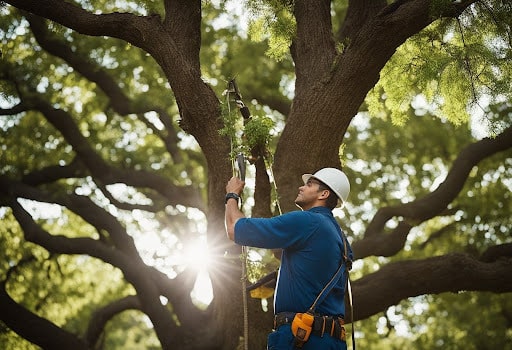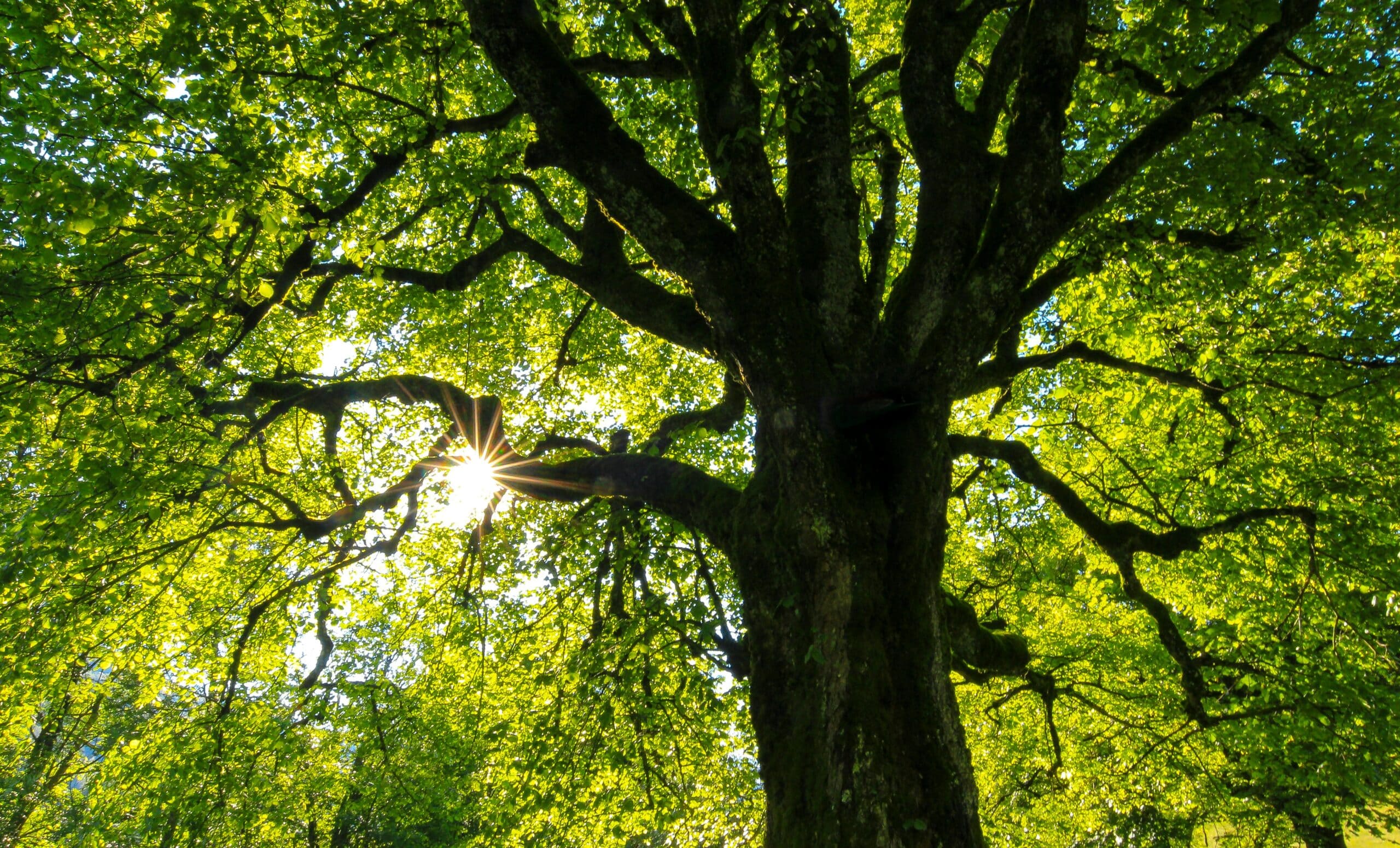
Date January 24, 2025
Category
Tree health assessments are essential for homeowners in Fort Worth who want to preserve the integrity and beauty of their landscapes. Regular evaluations like those provided by TreeNewal can identify potential issues such as disease, pests, or structural weaknesses that may not be immediately visible. By proactively addressing these concerns, homeowners can avoid costly damages and ensure their trees thrive for years to come.
In Fort Worth’s unique climate, trees face various stressors that can affect their health. Periodic assessments conducted by professionals can provide valuable insights into the condition of trees and recommend appropriate care strategies. This proactive approach not only protects the environment but also enhances property value and aesthetic appeal.
Investing in tree health assessments allows homeowners to take charge of their landscapes. With the right information, they can make informed decisions about tree care and maintenance. Prioritizing tree health translates to a more vibrant and sustainable community in Fort Worth.
Importance of Tree Health in Fort Worth
Maintaining tree health is essential for numerous reasons that directly benefit homeowners in Fort Worth. From reducing risks associated with tree hazards to enhancing property values and providing environmental advantages, a proactive approach to tree health is invaluable.
Reduction of Potential Hazards
Trees in Fort Worth can pose risks to properties and individuals if not properly maintained. Weak or diseased trees are more susceptible to falling, especially during storms or high winds. Regular tree health assessments help identify structural issues, like decay or insect infestations, that may compromise a tree’s integrity.
By assessing the health of trees, homeowners can take preventive measures, such as pruning or removing hazardous trees. This proactive approach significantly reduces the likelihood of accidents, property damage, and costly repairs. Recognizing potential risks early can save homeowners both time and money in the long run.
Enhancement of Property Value
Healthy trees are a significant asset for any property in Fort Worth. Properly maintained trees enhance landscape aesthetics and increase curb appeal. Studies have shown that well-kept trees can raise property values by as much as 15%.
Investing in tree health assessments and subsequent care can result in a landscape that attracts buyers, thereby enhancing the overall value of a home. Furthermore, healthy trees can provide shade, reduce energy costs, and contribute to a desirable neighborhood ambiance, elevating property desirability.
Environmental Benefits
Tree health plays a vital role in environmental sustainability within Fort Worth. Healthy trees improve air quality by absorbing carbon dioxide and releasing oxygen, contributing to a healthier atmosphere. They also provide habitat for wildlife and support local ecosystems.
Additionally, well-maintained trees help manage stormwater by reducing runoff and preventing soil erosion. This contributes positively to the community’s water management efforts. Promoting tree health fosters biodiversity and creates greener urban spaces, enhancing the overall environmental quality for current and future generations.
Tree Health Assessment Techniques
Tree health assessments utilize a variety of techniques to accurately evaluate the condition of trees. These methods help identify potential issues and provide a roadmap for maintaining tree vitality.
Visual Inspection
Visual inspections are the first step in assessing tree health. Arborists examine the tree’s structure, leaves, and overall condition, looking for signs of disease or stress. Key indicators include:
- Leaf discoloration: Yellowing or browning leaves can signify nutrient deficiencies or pest issues.
- Bark abnormalities: Cracks, cankers, or peeling bark may indicate diseases or injury.
- Branch integrity: Dead or broken branches suggest structural weakness.
This thorough assessment allows arborists to identify immediate problems and prioritize further examinations if needed. Regular visual inspections can also baseline a tree’s health over time.
Diagnostic Tools
Diagnostic tools enhance the accuracy of tree health assessments. Arborists employ several instruments to gather data on structural integrity and vitality. Common tools include:
- Mallet and increment borer: These tools assess wood density and strength.
- Electrical resistance measurement: This method evaluates moisture content and identifies root rot or decay.
- Soil moisture meters: These determine whether the tree receives adequate water.
Utilizing these diagnostic instruments enables a more detailed analysis of tree health. Findings from this equipment contribute to an informed management plan to address any identified issues.
Soil Analysis
Soil analysis plays a crucial role in tree health assessments. The quality of the soil directly impacts a tree’s growth and vitality. Key factors assessed during soil analysis include:
- Nutrient levels: Testing for essential nutrients like nitrogen, phosphorus, and potassium ensures that trees receive adequate nourishment.
- pH balance: A balanced pH level is vital for nutrient absorption.
- Compaction: Compacted soil limits root growth and can lead to water retention issues.
Understanding soil health helps homeowners implement proper care practices. Amendments can be suggested based on the analysis, promoting better tree growth and resilience against pests and diseases.
Common Threats to Trees in Fort Worth
Trees in Fort Worth face various challenges that can significantly impact their health. Recognizing these threats is essential for homeowners who wish to preserve their trees and avoid costly damages.
Pest Infestation
Pests pose a significant threat to tree health in Fort Worth. Common pests include aphids, borers, and scale insects. These infestations can lead to weakening trees, reduced growth, and even tree death.
Indicators of pest issues include discolored leaves, wilting, or visible insects. Regular inspections can help in early detection. Homeowners can benefit from integrated pest management strategies, which may involve introducing natural predators or applying targeted treatments.
Diseases
Trees in Fort Worth are susceptible to various diseases that can compromise their vitality. Fungal infections, such as root rot and powdery mildew, are prevalent in the area. These diseases can spread rapidly and reduce a tree’s ability to transport nutrients and water.
Symptoms of disease include unexpected leaf drop, unusual bark texture, or fungal growth. Early intervention is critical. Treatments may involve pruning infected branches or applying fungicides to prevent further spread.
Climatic Stress
The climate in Fort Worth can create stress for trees, impacting their overall health. Extreme heat, drought, and fluctuating temperatures can lead to dehydration, leaving trees vulnerable to other threats.
Signs of climatic stress include leaf scorch, premature leaf drop, and stunted growth. Homeowners should implement proper watering techniques and mulch to retain soil moisture. Additionally, choosing tree species well-suited for the local climate can enhance resilience against stressors.
Preventive Measures and Treatment
Implementing preventive measures and timely treatment is essential for maintaining tree health in Fort Worth. Regular maintenance and professional consultations can significantly mitigate risks associated with tree care.
Regular Maintenance
Routine tree maintenance plays a vital role in preventing potential health issues. Homeowners should consider the following practices:
- Pruning: Regular pruning ensures proper airflow and sunlight penetration, reducing the risk of disease.
- Watering: Consistent watering, especially during dry spells, supports root health and overall tree vitality.
- Mulching: Applying mulch helps retain soil moisture and regulates temperature, promoting healthy root systems.
Monitoring trees for signs of pests or disease can prevent more extensive damage. Regular checks allow for early detection, enabling homeowners to take swift action. This proactive approach can save homeowners from costly removals or damage repairs.
Professional Arborist Consultation
Engaging with a certified arborist offers valuable insights into tree health. They provide specialized knowledge in areas such as:
- Diagnosis: Arborists can identify specific tree diseases or pest infestations that may not be visible to the untrained eye.
- Treatment Plans: Expert analysis leads to customized treatment recommendations tailored to the tree species and specific conditions.
- Long-term Care: Arborists can develop a sustainable care plan that includes regular assessments and targeted interventions.
Investing in professional consultations yields long-term benefits. Their expertise enables homeowners to maintain thriving trees while minimizing future risks and expenses.
Ensure the beauty and safety of your Fort Worth landscape with professional tree health assessments. By identifying and addressing issues like pests, diseases, and structural weaknesses early, you can protect your trees and property from costly damages while enhancing their longevity. Regular assessments not only improve tree vitality but also contribute to a more vibrant and sustainable community.
For expert tree health assessments in Fort Worth, trust TreeNewal. Serving the Dallas and Fort Worth Metroplex since 2017, their ISA-certified arborists provide tailored solutions to ensure your trees thrive. Take charge of your landscape today—contact TreeNewal for proactive tree care and maintenance!









